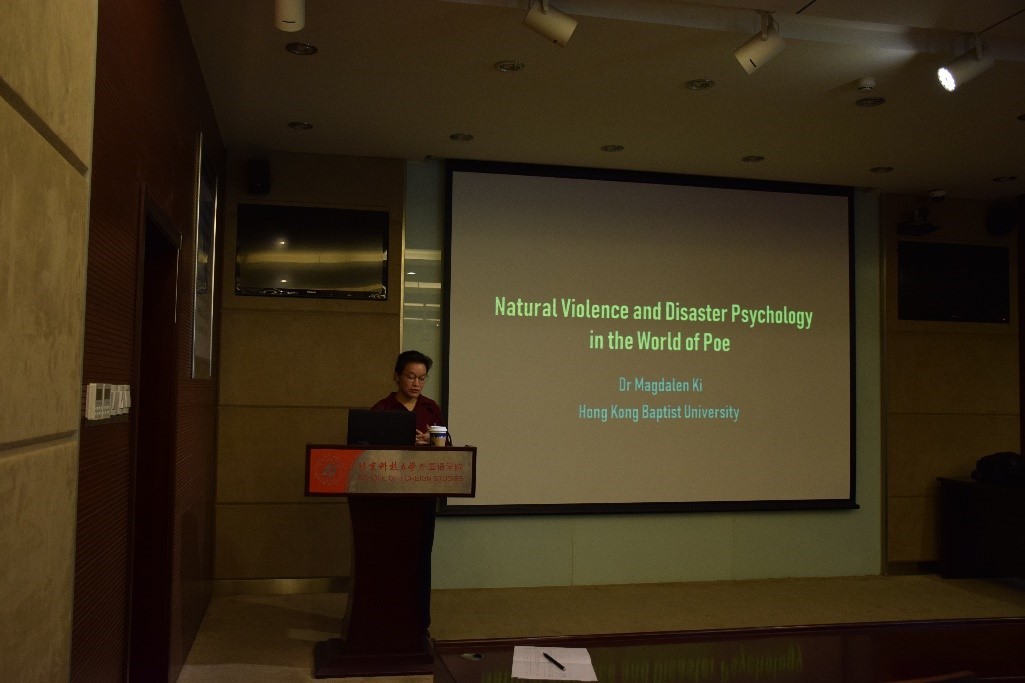Allan Poe’s Novel and the Expression of Natural Disasters

Following “the Justice Expression in Jane Austen’s Novels and Movies”, “ Allan Poe, Justice and Murders in the Rue Morgue”, and a symposium with young teachers and graduate students on “The Study of 19th Century British and American Fiction”, Dr. Qi, Associate Professor of English and American Literature from the Department of English at Hong Kong Baptist University, gave a lecture entitled “Natural Violence and Disaster Psychology in the World of Poe” in Room 315 in the SFS building from 8 to 10 a.m., May 23.

The lecture began with a round of applause and was presided by Associate Professor Fan Yiting of the School of Foreign Studies (the SFS). In the beginning, Prof. Qi continued the discussion of “justice and violence” from her first lecture, and creatively defined natural disasters such as earthquakes, tsunamis, and storms as “natural violence” beyond human control, while citing extensive data confirming the negative impact of natural disasters on Western countries in recent years. Then, from the perspective of psychology, she defined “disaster” as a “dangerous, sudden, destructive, and traumatic event”, thus examining and criticizing natural disasters in the framework of psychological studies and building an argumentative framework for the “expression of natural disasters” in literary studies.
She then turned the topic to historical events such as the transatlantic slave trade in the West between the 17th and 19th Century, the “Trail of Tears” and the “Lewis and Clark Expedition”, and explained the importance of the discovery of the West to the discoveries of American species and searching for an all-water route to the Pacific Ocean. The topic of natural disasters was also brought up. She took Poe’s short story “The Masque of the Red Death” as an example to explain the “claustrophobia”, the imagery of the room and death, the literary metaphor of the number 7, and Prince Prospero’s law of death in the story. She pointed out that natural disasters are beyond the scope of human’s moral judgment and are therefore “natural violence” which is not subject to human’s will.
Finally, Prof. Qi talked about the psychological trauma caused by the disaster as well as its solution. Firstly, she used the Kubler-Ross curve to show the 7 stages of human psychological changes triggered by “grief”, namely panic, rejection, anger, trade-off, depression, testing, and acceptance. Then “psychosocial” aspects of the effects of “natural disasters” was discussed. She also introduced post-traumatic stress disorder (PTSD) and its specific manifestations, including flashbacks and hyperarousal. After the lecture, the students and teachers raised several rounds of questions with Prof. Qi about the specific symptoms of PTSD and Lacan’s definition of “others”, all of which were well answered.
During the four-day lecture, Prof. Qi not only introduced the latest research trends and academic hotspots in foreign academia such as justice and violence, “post-disaster” and “natural disaster expression” to the participants, but also broadened the academic and thinking horizons of the students. Prof. Qi’s unique aura of humanities scholars, fluent English, quick thinking, and confidence inspired young faculty and doctoral and master’s students to continue their research.
